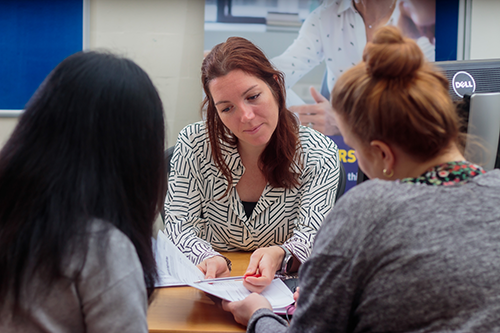Support Through Court
Partnering with law schools to offer people support through the court process
Support Through Court exists to provide practical and emotional support for people going through court without representation. Faced with a precarious financial situation, it has developed new services in partnership with law schools across the country, providing students with crucial career development opportunities.
 The charity was faced with cuts to government money. While transitional funding and an emergency appeal helped in the short term, it wanted a more sustainable solution to funding its work.
The charity was faced with cuts to government money. While transitional funding and an emergency appeal helped in the short term, it wanted a more sustainable solution to funding its work.
At the same time, as the cost-of-living crisis deepened, it was seeing more people unable to access representation when going through court. Its existing services reported that more people were unable to pay legal fees, with many going through court for cost-related reasons in the first place. People were unable to physically visit its services as a result of rising transport costs.
Determined not to reduce or close services, Support Through Court began to think innovatively about ways to keep operating. The route people take to qualify to become a lawyer had also changed. Those taking the solicitors qualifying exam route now need to complete two years’ work experience. The charity realised its work could provide students with invaluable practical time on the job, and began to talk to law schools about working together.
It has now agreed to provide services in partnership with seven universities, through which it has supported 14,052 people. As well as recording positive outcomes around how clients feel before and after support, increased confidence, and receiving a fairer hearing in court, there have been a huge number of benefits for the charity’s staff team, from improved wifi and IT equipment. Onsite support from university IT teams has improved efficiency, as well as ways of offering remote access to support.
Awards judge Nicola Toyer said the charity’s work is addressing a growing problem and giving access to legal assistance to a group that really needs it, not only by providing advice to people in the areas where the universities are but by running a national helpline others can access too.
Ruth Davison said the partnership with universities was delivering “positive outcomes that face both ways – clients get the support they need from someone who’s learning and the student volunteer has the experience of supporting someone through court. It is sustainable and it is replicable, as they could work with more universities. It felt like an interesting and innovative model.”
CC Reg no. 1090781

